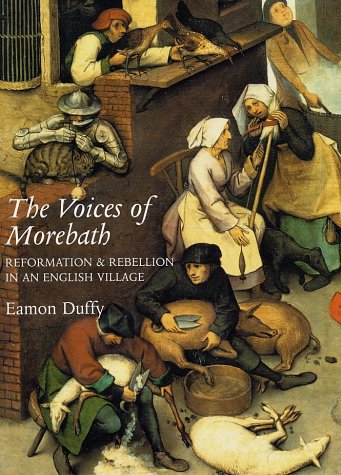

Most ebook files are in PDF format, so you can easily read them using various software such as Foxit Reader or directly on the Google Chrome browser.
Some ebook files are released by publishers in other formats such as .awz, .mobi, .epub, .fb2, etc. You may need to install specific software to read these formats on mobile/PC, such as Calibre.
Please read the tutorial at this link: https://ebookbell.com/faq
We offer FREE conversion to the popular formats you request; however, this may take some time. Therefore, right after payment, please email us, and we will try to provide the service as quickly as possible.
For some exceptional file formats or broken links (if any), please refrain from opening any disputes. Instead, email us first, and we will try to assist within a maximum of 6 hours.
EbookBell Team

0.0
0 reviewsThe bulk of Morebath's conventional archives have long since vanished. But from 1520 to 1574, through nearly all the drama of the English Reformation, Morebath's only priest, Sir Christopher Trychay, kept the parish accounts on behalf of the churchwardens. Opinionated, eccentric, and talkative, Sir Christopher filled these vivid scripts for parish meetings with the names and doings of his parishioners. Through his eyes we catch a rare glimpse of the life and pre-reformation piety of a sixteenth-century English village.
The book also offers a unique window into a rural world in crisis as the reformation progressed. Sir Christopher Trychay's accounts provide direct evidence of the motives which drove hitherto law-abiding West-Country communities to participate in the doomed Prayer-Book Rebellion of 1549 - culminating in the siege of Exeter which ended in bloody defeat and a wave of executions. Its church bells confiscated and silenced. Morebath shared in the punishment imposed on all the towns and villages of Devon and Cornwall. Sir Christopher documents the changes in the community: reluctantly Protestant, no longer focused on the religious life of the parish church, and increasingly preoccupied with the secular demands of the Elizabethan state, the equipping of armies, and the payment of taxes. Morebath's priest, garrulous to the end of his days, describes a rural world irrevocably altered, and enables us to hear the voices of his villagers after four hundred years of silence